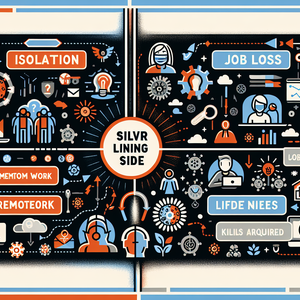The Rise of Reshoring and the New Era of Workforce Opportunity

The growing momentum behind reshoring can be attributed to economic, political, and social factors. Companies are addressing supply chain vulnerabilities, geopolitical uncertainties, consumer demand for local products, and leveraging technological advancements to bring production closer to home.
Supply Chain Vulnerabilities
The COVID-19 pandemic exposed the fragility of global supply chains, causing delays and disruptions. Reshoring allows businesses to regain control, reduce risks, and improve operational resilience.
Geopolitical Uncertainty
Geopolitical tensions, trade disputes, and tariffs have made offshoring less predictable. Companies are reshoring to mitigate risks tied to international conflicts and policy changes, such as the U.S.-China trade conflicts.
Consumer Demand for Local Products
Modern consumers prioritize locally made products for sustainability, ethical labor practices, and domestic economic growth. Reshoring aligns with these values, enhancing brand loyalty and competitiveness.
Technological Advancements
Technologies like robotics, AI, and automation have reduced the cost advantages of offshoring. Companies can now produce goods domestically at competitive prices, creating skilled jobs and reducing reliance on cheaper overseas labor.
Industries Leading the Reshoring Revolution
Reshoring is transforming industries like manufacturing, technology, and healthcare, creating diverse opportunities for skilled professionals.
Manufacturing
Manufacturing leads the reshoring trend with investments in modern facilities and domestic production. Companies like Tesla, Ford, and General Motors are creating high-paying jobs and revitalizing local communities.
Technology
Tech companies are reshoring to prioritize cybersecurity and intellectual property protection. Semiconductor manufacturing is also resurging in the U.S., creating opportunities for engineers and IT specialists.
Healthcare and Pharmaceuticals
The pandemic highlighted the risks of offshore pharmaceutical production. Reshoring in this sector is creating jobs for chemists, biotechnologists, and supply chain experts.
Real-World Success Stories
Examples of successful reshoring include Ford's EV production in Michigan and Tennessee, the reopening of a textile factory in South Carolina, and Intel's semiconductor investment in Arizona, benefiting workers, communities, and the economy.
Reskilling and Upskilling: Preparing the Workforce for Reshoring
Reshoring creates opportunities but also challenges due to skill gaps. Governments, corporations, and educational institutions are investing in reskilling and upskilling programs to prepare workers for reshored industries.
Government Initiatives
Governments are funding workforce development programs focused on advanced manufacturing, robotics, and other in-demand skills.
Corporate Training Programs
Companies like Amazon are investing in reskilling employees, offering training in areas like cloud computing, data analytics, and robotics.
Educational Institutions
Universities and colleges are adapting curricula to align with reshoring needs, offering programs in mechatronics, industrial design, and data visualization.
The rise of reshoring represents a transformative shift in global workforce dynamics. It offers opportunities for skilled professionals while addressing supply chain vulnerabilities and fostering economic resilience. By investing in education, training, and technology, reshoring can drive sustainable and inclusive growth, shaping a more equitable and innovative future for workers and communities.
Advanced Manufacturing Engineer
Tesla, General Electric, Honeywell
Responsibilities
Design and optimize automated production lines, incorporating robotics and AI technologies.
Lead the implementation of advanced manufacturing processes like additive manufacturing (3D printing) to scale domestic production.
Collaborate with suppliers and production teams to ensure high-quality output and minimize waste.
Unique Skills
Expertise in CAD software, automation integration, and lean manufacturing techniques.
Semiconductor Process Engineer
Intel, TSMC (Arizona), Micron Technology
Responsibilities
Develop and improve processes for manufacturing semiconductors, ensuring efficiency and precision.
Monitor production yields and address defects to maintain strict quality standards.
Work closely with R&D teams to implement cutting-edge chip designs in domestic facilities.
Unique Skills
Cleanroom experience, photolithography knowledge, and expertise in chemical vapor deposition (CVD).
Supply Chain Resilience Analyst
General Motors, Ford, Boeing
Responsibilities
Assess and mitigate risks in domestic supply chains, ensuring continuity and adaptability in reshored operations.
Identify and onboard local suppliers to reduce reliance on foreign sourcing.
Use data analytics tools to optimize inventory management and streamline logistics.
Unique Skills
Proficiency in supply chain management software (e.g., SAP, Oracle), data modeling, and risk assessment frameworks.
Pharmaceutical Manufacturing Specialist
Pfizer, Moderna, Amgen
Responsibilities
Oversee the production of essential drugs and vaccines in reshored pharmaceutical facilities.
Ensure compliance with FDA regulations and Good Manufacturing Practices (GMP).
Manage quality control processes, including laboratory testing and audit preparation.
Unique Skills
Knowledge of aseptic techniques, bioreactor systems, and pharmaceutical-grade equipment.
Industrial IoT (IIoT) Systems Architect
Siemens, Rockwell Automation, ABB
Responsibilities
Design and deploy Industrial Internet of Things (IIoT) systems to enable smart factories that support reshored manufacturing.
Integrate IoT sensors with cloud platforms to enable real-time monitoring of equipment and production lines.
Develop cybersecurity protocols to protect sensitive manufacturing data.
Unique Skills
IoT architecture design, cloud computing (AWS, Azure), and cybersecurity certifications.


